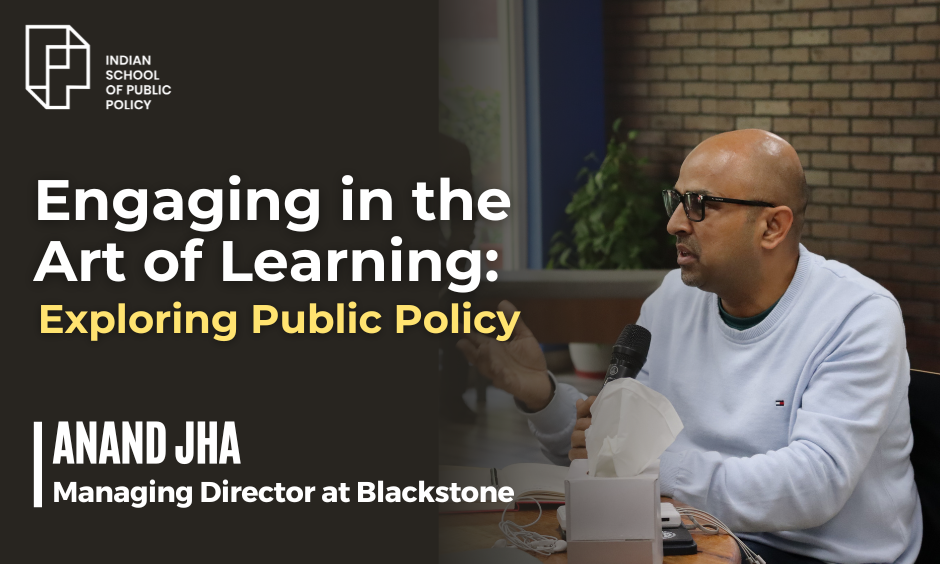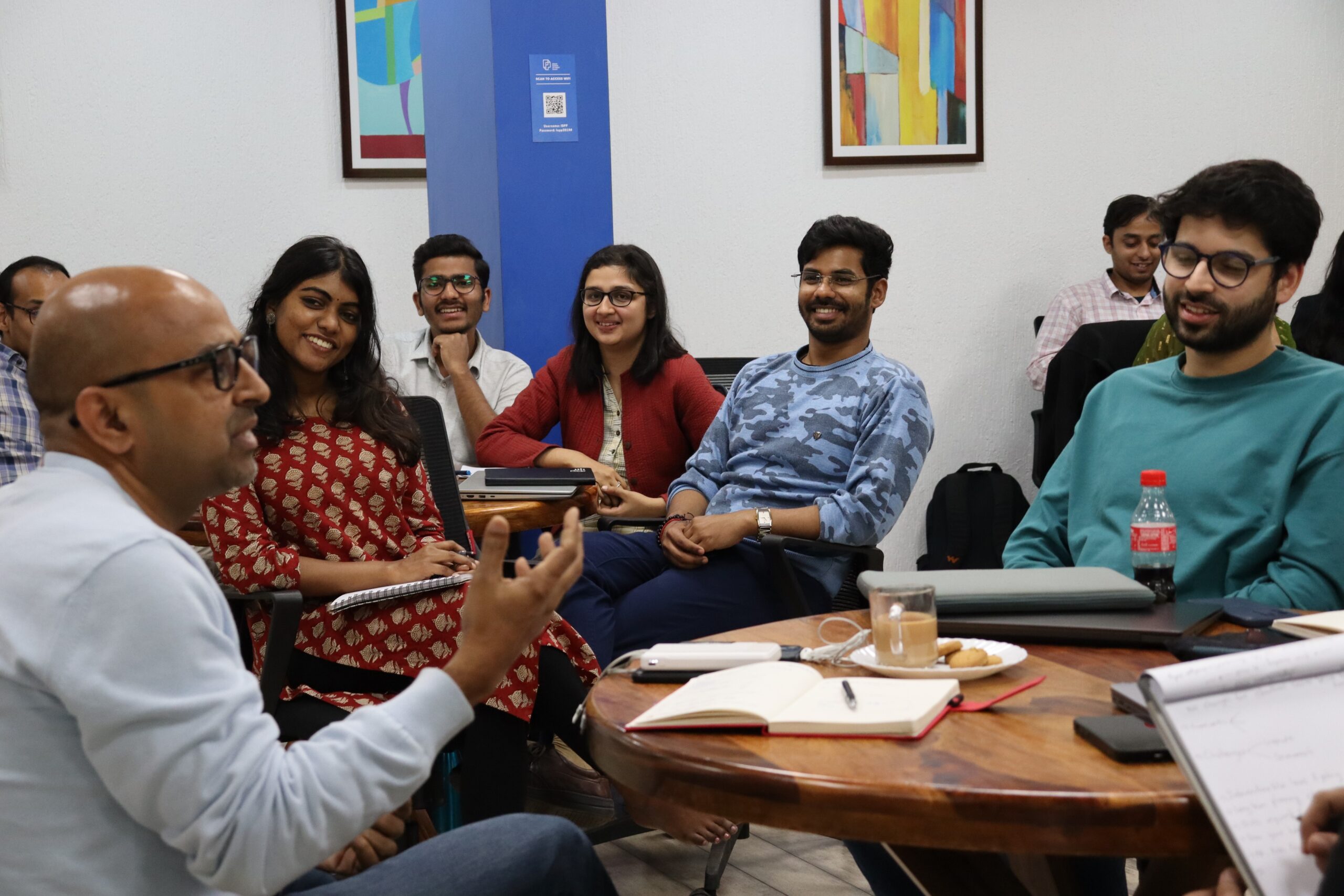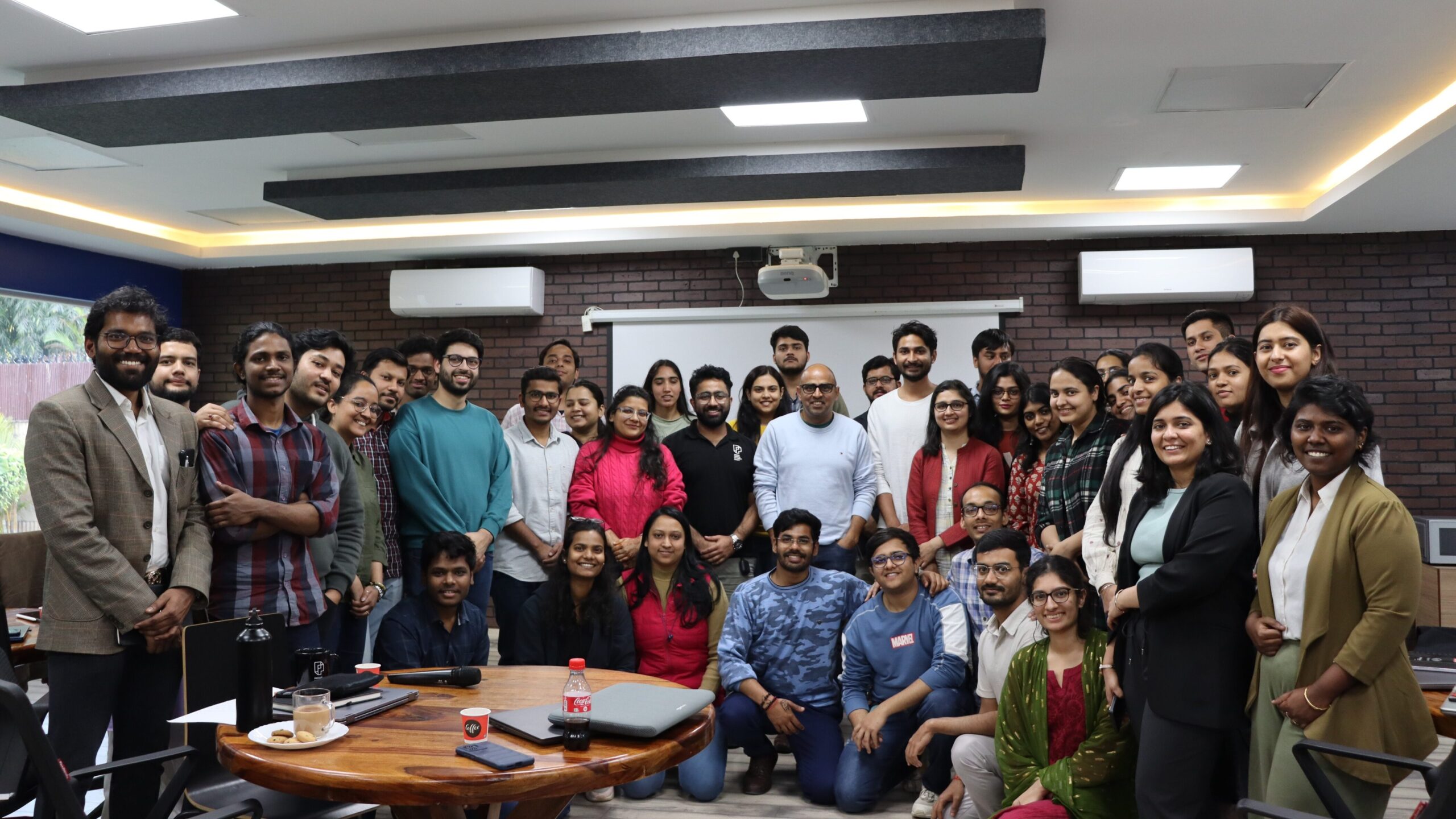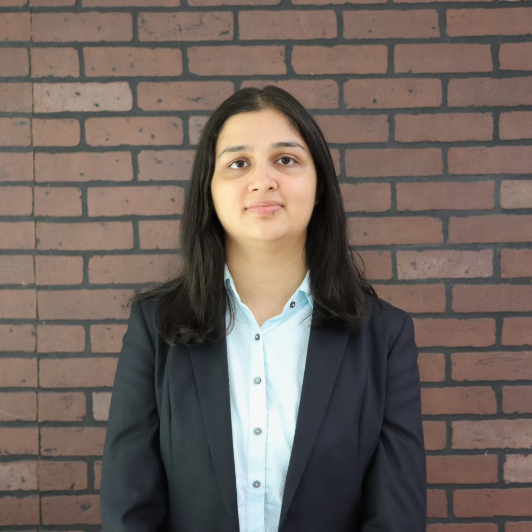
Engaging in the Art of Learning: Exploring Public Policy | Anand Jha

ISPP’s Tea and Policy Session Unpacks Key Learning Strategies
The Indian School of Public Policy (ISPP) recently hosted an enriching Tea and Policy session featuring Anand Jha, Managing Director at Blackstone Group. This exclusive event, part of our one-year public policy program, offered scholars a unique opportunity to delve into intricate public policy issues and learning techniques.
➤ Cultivating Lateral Learning in Public Policy
One of the focal points of the session was the importance of lateral learning—a dynamic where policy professionals and their audiences learn from each other, contrasting sharply with traditional, one-directional knowledge sharing. This interactive learning fosters deeper understanding and collaborative problem-solving, moving beyond the superficial layer of information exchange.
➤ Deep Dive into Subject Matter Expertise
Anand emphasised the significance of going beyond the surface in discussions, especially when engaging with seasoned industry leaders. Understanding their background, recognising the pressures they face, and tailoring conversations accordingly not only respects their expertise but also elevates the quality of dialogue. This approach allows for more relevant and impactful interactions.
➤ Mastering Brevity and Depth in Communication
A recurring theme throughout the session was the critical role of concise communication, especially when addressing high-level decision-makers under time constraints. Effective public policy dialogue often requires a blend of brevity and depth, ensuring that every word conveys substantial meaning and intent.
➤ The Unexpected Benefits of Tough Mentorship
Anand highlighted the surprising advantages of having stringent mentors. These mentors challenge learners to think critically and adapt quickly, invaluable skills in the fast-paced world of public policy. Such mentorship prepares individuals for high-stakes environments where concise, clear communication is crucial.

➤ Frameworks for Controlled Risk and Objective Assessment
The discussion also covered strategic frameworks for decision-making. The ‘DPE framework’—Dream, Plan, Execute—was discussed as a tool for individuals to clearly define their aspirations, plan meticulously, and execute effectively. Anand used this model to illustrate the importance of acknowledging and overcoming personal limitations to achieve clarity in one’s goals.
➤ The Role of Honesty in Personal and Professional Development
Honesty emerged as a cornerstone for personal and professional relationships. Whether it’s soliciting candid feedback from trusted friends or engaging in meaningful daily interactions with family, honesty helps mitigate uncertainties and aligns personal ambitions with broader organisational goals. Anand stressed the importance of regular self-assessment in career trajectories, advocating for thoughtful consideration before making job changes.
➤ Navigating Organizational Dynamics with the Opportunity Evaluation Matrix
Anand introduced an Opportunity Evaluation Matrix, a comprehensive tool for analysing job satisfaction factors such as job relevance, potential growth, colleague dynamics, and long-term goal alignment. This matrix helps individuals assess their professional environment holistically, considering both immediate and future prospects.
➤ Adapting to Uncertainty: The Garbage Can Model and Beyond
The session also touched on the Garbage Can Model of decision-making, which is relevant, particularly in the unpredictable landscapes of developing nations. This model emphasises managing ambiguity and fostering resilience amidst organisational chaos.
Concluding Thoughts on Attitude and Success
In conclusion, Anand Jha reiterated the profound impact of one’s attitude on their long-term success in both personal and professional spheres. The ability to adapt, engage sincerely, and learn continuously defines the trajectory of effective public policy professionals.
This session not only highlighted key learning and communication strategies but also provided ISPP scholars with actionable insights into becoming more adept and versatile in the field of public policy.

The Post Graduate Programme in Public Policy offered by the Indian School of Public Policy (ISPP) stands as a prestigious and thorough initiative, meticulously crafted to prepare students for impactful careers in public policy. The programme ensures that students acquire vital knowledge, skills, and values essential for success as policy professionals in government, civil society, or the private sector.
Register your Interest to Study at ISPP

Aastha
PDM Scholar, Class of 2024
Aastha worked at Lokniti, CSDS providing research inputs for various South Asian-centric studies such on the Indian developmental process, such as the police study in Covid-19 affected areas and the Urban poor in Delhi. She completed her undergraduate degree in Sociology from the University of Delhi followed by a master’s degree in Development Studies from the Tata Institute of Social Sciences in Mumbai. In line with these courses and research experiences, she hopes to further contribute in understanding and broadening the developmental paths pursued by India coupled with continual analyses of the specifications of the public policy frameworks to ensure that these developmental paths are charted in a fair and equitable manner.
https://www.linkedin.com/in/aastha-s-711815178/

Ayushi Gupta
Programme Advisor – ISPP
https://www.linkedin.com/in/ayushi-gupta-1570b414b/

